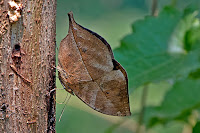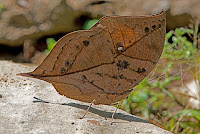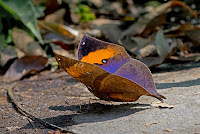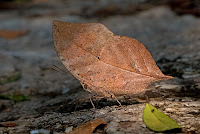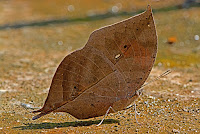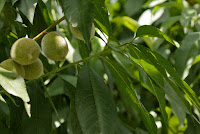<> Kallima inachus Boisduval,1836 <>
the Orange Oak Leaf ผีเสื้อใบไม้ใหญ่อินเดีย
Click on any photo to see large version
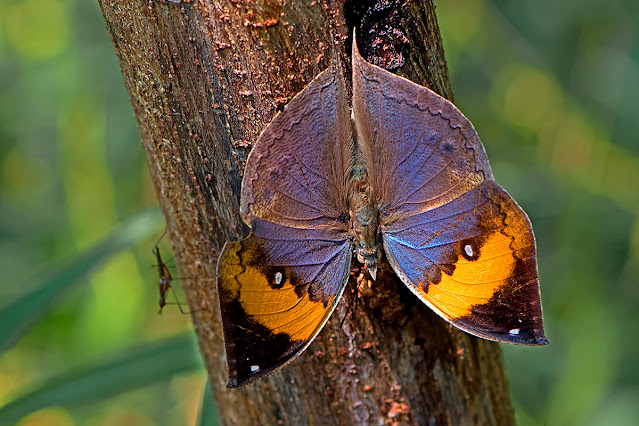
Photo taken at Doi Suthep-Pui National Park, Chiang Mai, Thailand. ♂ 380m a.s.l.

This butterfly is a real master of camouflage. When its wings are closed it bears a remarkable resemblance to a dead leaf both in colour and shape. The cryptic pattern on the underside of the wings varies greatly from one individual to another, making it even harder for predators (mostly birds) to recognise it. On some individuals the veins are darkened to resemble the central stem and veins of a leaf while another individual may exhibit dark patches that have the appearance of fungus-like growths so common on dead leaves in the tropics. It is a large butterfly and is a strong flier. The sexes are similar in appearance but the female is slightly larger and has an extended point at the apex of the forewing. The species is multivoltine but with only 3 or 4 broods per annum.
Synonyms and previously used names: Paphia inachus, Kallima formosana
Taxonomy: Animalia - Arthropoda - Insecta - Lepidoptera - Nymphalidae - Nymphalinae - Kallima - inachus
Regional Distribution: India, Nepal, Bhutan, Bangladesh, Myanmar, Thailand, Laos, Cambodia, Vietnam, China, Taiwan
Habitat: moist deciduous forest and evergreen forest, up to 2400m a.s.l. Wingspan: 85-100mm
Flight time: February to November, depending on location
Life History: egg 5-7 days instar 1 4-5 days instar 2 3-5 days instar 3 5-6 days instar 4 5-6 days instar 5 10-12 days pupa 10 days Total egg to adult 42-52 days. All times approximate.
Larval Hosts: Hygrophila pogonocalyx, Hygrophila ringens, Lepidagathis formosensis, Rostellularia procumbens, Strobilanthes auriculata, Strobilanthes capitata, Strobilanthes clarkei, Strobilanthes cusia, Strobilanthes flexicaulis, Strobilanthes pentastemonoides, Strobilanthes rankanensis (Acanthaceae), Strongylodon macrobotrys (Fabaceae), Girardinia diversifolia (Urticaceae), Persicaria orientalis (Polygonaceae), Prunus persica (Rosaceae), Dicliptera chinensis (Dicliptera). Hosts used depends upon location and availability of plant species.
Adult Food Sources: Nectar - Lantana camara (Verbenaceae). This species only rarely visits flowers. Other - tree sap, over-ripe fruit, animal dung, mud puddling
Links to other pages in this series for species in the same subfamily
Junonia hierta
Kallima inachus
Symbrenthia lilaea

